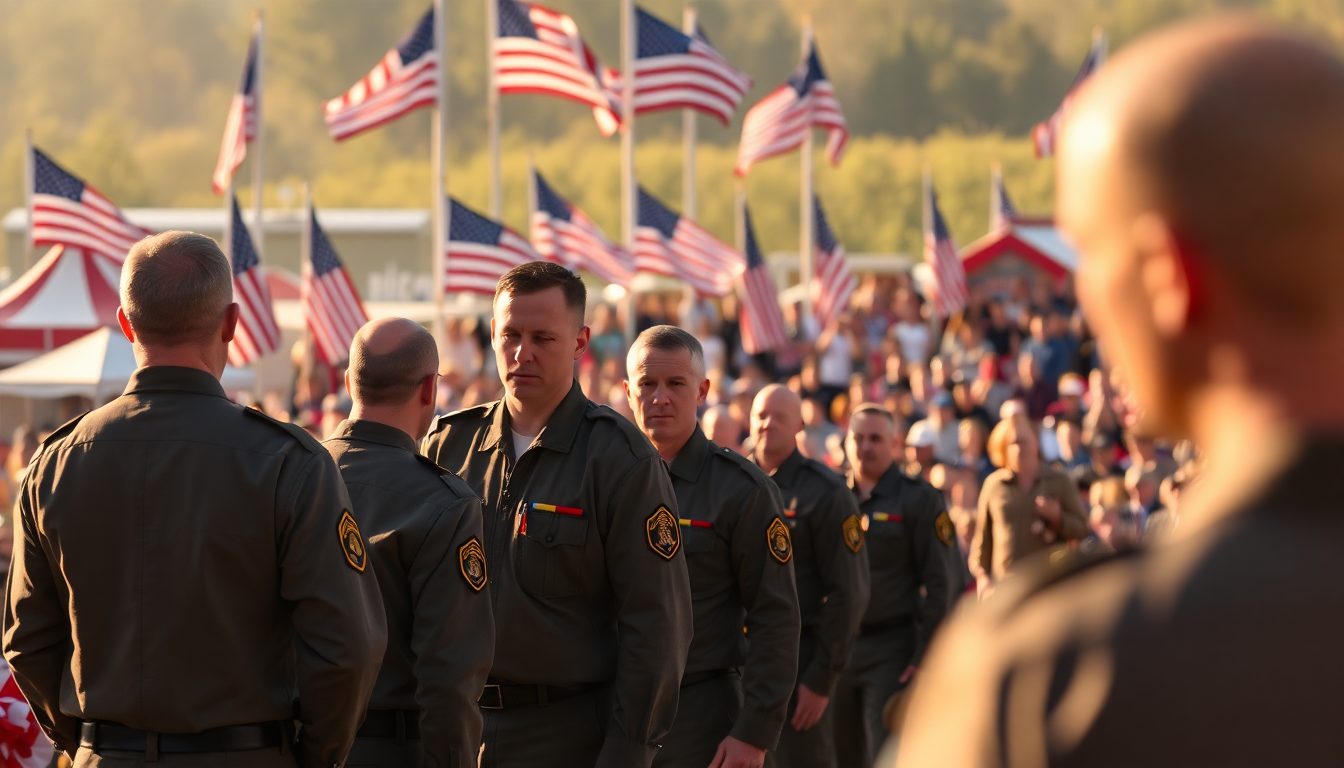Table of Contents
At a recent rally held at the Iowa State Fairgrounds, President Donald Trump delivered an impassioned address, paying tribute to the military flight team that executed strikes on Iran’s nuclear facilities. This event not only highlighted Trump’s appreciation for the military but also shed light on his views regarding media portrayals and national security. So, what does this mean for the future of U.S.-Iran relations and the military’s role in modern conflicts? Let’s dive in.
Military Recognition and Trump’s Perspective
In a speech that truly captivated his supporters, President Trump took a moment to commend the military personnel involved in those aerial strikes on Iran. He didn’t hold back his frustration over initial media reports that downplayed the success of the operation, insisting that it was a significant victory for the U.S. Armed Forces. “Remember when CNN said it wasn’t obliterated?” Trump remarked, emphasizing that the strikes had indeed achieved their intended goals. By defending the integrity and effectiveness of the military, he aimed to make it clear that any minimization of their accomplishments was an affront not just to him, but to the pilots and support crew who executed the mission flawlessly.
But why does this matter? Trump’s comments reflect a broader narrative aimed at boosting the morale of military personnel and their families. By publicly recognizing the team at the White House on Independence Day, he sought to reinforce a sense of nationalism and pride associated with military service, linking it to the celebration of American independence. Isn’t it interesting how public perception can shape the narrative around military actions?
Context of Military Actions and U.S.-Iran Relations
The president’s remarks come at a crucial juncture in U.S.-Iran relations, which have been marked by a series of confrontations and tactical maneuvers. Trump recounted a conversation with Iranian officials regarding their retaliatory strike on a U.S. military base in Qatar, framing it as a sign of respect. By stating that Iran had called to inform him of their planned actions, Trump attempted to shift the narrative of military engagement from impulsive conflict to strategic power. But does this really project strength and control in international affairs? It’s a key theme of Trump’s presidency.
Moreover, his assertion that the U.S. military is unmatched globally reinforces his administration’s commitment to maintaining and enhancing military capabilities. By emphasizing the technological superiority and effectiveness of U.S. forces, Trump aims to reassure both domestic and international audiences of America’s status as a formidable military power. Isn’t it fascinating how much emphasis is placed on military prowess in political narratives?
The Importance of Military Morale and Public Perception
In the realm of military operations, public perception plays a crucial role in shaping both morale and policy. Trump’s efforts to publicly honor military personnel can be seen as a strategic move to foster support for military initiatives among the general populace. Such recognition not only boosts the spirits of those currently serving but also resonates with veterans and their families, creating a broader base of support for military actions. How does this recognition influence public sentiment?
As Trump pointed out, the pilots involved in the operation achieved a remarkable feat that he believes deserves national acknowledgment. This aligns with a long-standing tradition in American culture that values military service and sacrifice. By framing military success as a collective achievement, Trump seeks to unify public sentiment around national pride and the sacrifices made by those in uniform. Isn’t it powerful how shared experiences can rally a nation together?
Conclusion: The Future of Military Engagement
As the political landscape continues to evolve, the role of military recognition and public perception will remain pivotal in shaping U.S. foreign policy. Trump’s remarks at the Iowa rally not only serve to honor military personnel but also highlight the ongoing complexities of international relations. The interplay between political narratives and military actions will undoubtedly remain a critical factor in the administration’s approach to national security and defense strategies. What do you think this means for the future of military engagement?


